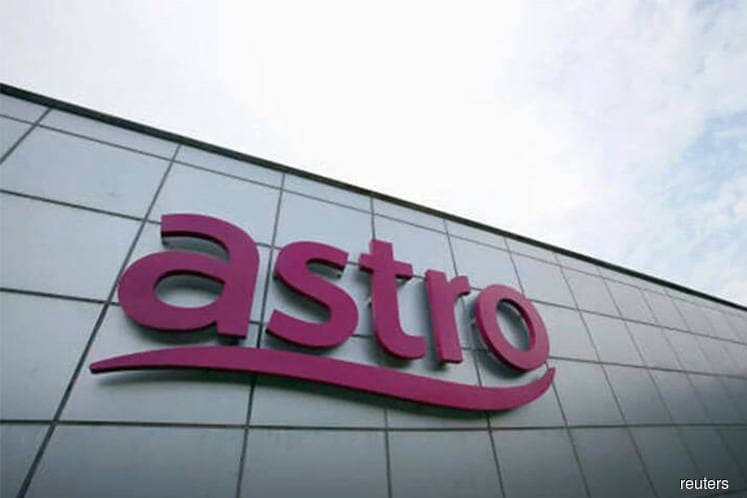
This article first appeared in The Edge Malaysia Weekly on October 1, 2018 - October 7, 2018
ASTRO Malaysia Holdings Bhd last week announced its lowest quarterly earnings since it was relisted on Bursa Malaysia in October 2012.
It posted a net profit of RM16.6 million in its second quarter ended July 31, down 93% from the previous corresponding period. The company attributed the huge contraction to higher content costs due to the Fifa World Cup 2018 and higher merchandise and net finance costs.
As a result, the group’s core earnings in the first half of its financial year ending Jan 31, 2019 (1H2019), made up only 33% of consensus estimates. Half-year net profit stood at RM191.3 million, less than half the RM442.16 million posted a year ago.
The fact that the Fifa World Cup made a loss for Astro instead of boosting its earnings came as a surprise to many. But what is more surprising is that investment analysts tracking the pay-TV operator are recommending a “buy” on its stock, although its earnings came in below expectations.
Their reasons are the stock’s attractive dividend yield and minimum downside risk, given that its price has dropped 44.5% or RM1.18 year to date.
“I continue to like the stock for its strong free cash-flow generation and fairly attractive dividend yield of more than 6%. And it has a strong content platform that is supported by its strong intellectual property rights,” RHB Research analyst Jeffrey Tan tells The Edge.
In 2QFY2019, operating cash flow was RM1.049 billion while net operating cash flow was RM929.2 million. As at July 31, the company’s cash balance had grown to RM334.8 million from RM233.6 million previously.
Tan notes that Astro is trading at a fairly attractive valuation as its share price has almost halved over the past year. “It hit an all-time low [of RM1.34 in May] this year. Based on historical trends, the valuation is now at negative 2.0 standard deviation,” he says, adding that there is limited downside risk going forward.
Maybank IB Research’s Samuel Yin Shao Yang writes in his research note that though Astro’s latest results missed his expectations, mainly due to the high content costs of the Fifa World Cup, he expects earnings to eventually pick up, thanks to lower content costs post the football event and a recovery in revenue.
Yin is also encouraged by Astro’s total subscriber number hitting an all-time high of 5.6 million in 2QFY2019, driven by the Fifa World Cup and reflecting improved consumer sentiment in Malaysia.
“With 20% upside potential [a target price of RM2] and more than 6% dividend yield per annum, we upgrade Astro to a ‘buy’ from ‘hold’,” he writes in his research note.
TA Research analyst Wilson Loo also upgraded Astro to a “buy” with a higher target price of RM1.95. He thinks there may be a knee-jerk reaction to the weak quarterly results but sees the group’s content costs normalising post the Fifa World Cup.
“The decent forward dividend yield of 6% to 6.6% across FY2019 and FY2021 will support the share price. With the improved risk-reward potential, we have upgraded Astro to a ‘buy’,” Loo comments in his latest results review.
He points out that the group has just secured the broadcasting rights for the English Premier League in Malaysia for another three seasons from 2019/20 to 2021/22.
On the company’s prospects, Loo says the management has indicated that it will continue to invest in vernacular content and is working on enhancing its proposition through the introduction of 4K Ultra High Definition channels and conducting technological upgrades across its platforms for a better user experience. He adds that these are the company’s strategies to defend its revenue going forward.
Astro’s share price has been drifting lower since the start of the year due to concerns that the stock may be removed as a constituent of the FBM KLCI.
It dropped from RM2.68 in January to a record low of RM1.34 in May, and lost 20% in September alone. The disappointing 2Q results did not help, pushing the stock down to RM1.47 last Friday.
“Though Astro’s downside risk is limited, there is not much upside for the stock either as it still lacks positive catalysts to perform,” says a fund manager, adding that the company’s strength in broadcasting sporting events is being eroded by stiff competition from over-the-top (OTT) and softening advertising expenditure.
Kenanga Research analyst Cheow Ming Liang, who has downgraded Astro to “market perform” from “outperform”, has trimmed his earnings estimate for FY2019 and FY2020 by 26% and 13% respectively in view of Astro’s latest uninspiring results.
He cautions that the introduction of more affordable and speedier broadband packages is expected to pose a challenge to pay-TV operators like Astro. He sees the company facing intense competition from OTT and illegal TV content as high-speed internet improvements boost content streaming and increase the demand for OTT and pirated content from websites.
He adds that the liberalisation of the pay-TV segment is another aspect to watch as this will allow competition to flourish and end monopolies in this lucrative sector.
Save by subscribing to us for your print and/or digital copy.
P/S: The Edge is also available on Apple's AppStore and Androids' Google Play.